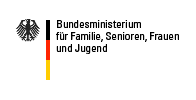Tools
Tools
Gender Mainstreaming is not an abstract requirement but a strategy for practice. It is intended to facilitate and integrate gender equality-oriented thinking and acting in people’s day-to-day working lives. To implement Gender Mainstreaming in specific work situations and link it with individual work-stages, “implementation aids” are needed. Various terms are used for such implementation aids, including checklists, guidelines, handbooks, helping hands, etc. They can all be described as tools.
Tools within the framework of the Gender Mainstreaming strategy are, accordingly, working materials which facilitate a thorough gender equality orientation.
They
In the different phases of implementation, tools fulfil various functions, by means of which they support successful implementation. Here you can find more information on the function and use of tools in the implementation process.
Tools do not include documents with information on Gender, Gender Mainstreaming or gender perspectives in policy fields and subject areas. But such information can contribute to the development and application of good tools.
Certain conditions must be met in the organisation itself for tools to be applied effectively:
In order to develop a tool further, an evaluation may be used which covers changed routines or procedural rules, etc. Users can be asked as part of a tool evaluation what the optimisation of a tool should look like. A tool evaluation can likewise be used to find out to what extent the establishment and implementation of GM in day-to-day working life is sustained. Here, you can find a research paper by the GenderCompetenceCenter on the evaluation of tools [German text], in which various perspectives are examined which play a part in the tool evaluation. The research paper is aimed at all those who are involved in the evaluation of tools and intended to support them in carrying out this task.
If you have a tool and want to assess its quality, you can find notes on the quality of tools here.
GM instruments crossing the boundaries of policy fields have also been developed. They include general test questions for the implementation of Gender Mainstreaming and provide assistance in making an initial analysis.
Examples:
GenderCompetenceCenter conference on “Tools for Implementing Gender Mainstreaming” [German link], Berlin, 2004
Ahrens, Petra / Kletzing, Uta / Kühl, Jutta: Instrumente von Gender Mainstreaming in der Verwaltungspraxis, in: Meuser, Michael / Neusüß, Claudia (eds.) Gender Mainstreaming. Konzepte – Handlungsfelder – Instrumente, Bonn, 2004, pp. 306 – 320
Baer, Susanne / Enders-Dragässer, Uta / Kuhl, Mara / Kreß, Brigitta / Sellach, Brigitte: Wissensnetz Gender Mainstreaming für die Bundesverwaltung, Frankfurt am Main und Berlin, Dezember 2003, http://www.gender-mainstreaming.net/RedaktionBMFSFJ/RedaktionGM/Pdf-Anlagen/wissensnetz-komplettfassung,property=pdf,bereich=gm,rwb=true.pdf
Federal Ministry for Family Affairs, Senior Citizens, Women and Youth (BMFSFJ): Working Aid Gender Impact Assessment - “Gender Mainstreaming in the Preparation of Legislation” (2007).
Tools within the framework of the Gender Mainstreaming strategy are, accordingly, working materials which facilitate a thorough gender equality orientation.
They
- have the aim of making gender equality a cross-sectional task for the aim of specialist work
- show a clear position on “Gender”
- are action-oriented
- generate gender knowledge.
In the different phases of implementation, tools fulfil various functions, by means of which they support successful implementation. Here you can find more information on the function and use of tools in the implementation process.
Tools do not include documents with information on Gender, Gender Mainstreaming or gender perspectives in policy fields and subject areas. But such information can contribute to the development and application of good tools.
Certain conditions must be met in the organisation itself for tools to be applied effectively:
- senior management must, within the scope of their management responsibility, bring about binding application on a formal level and ensure actual application by employees.
- previous measures of women’s and gender equality policy must be placed in a meaningful context with new measures within the framework of GM and not in competition with them.
- structures must be created to guarantee that tools are regularly evaluated and if necessary optimised.
In order to develop a tool further, an evaluation may be used which covers changed routines or procedural rules, etc. Users can be asked as part of a tool evaluation what the optimisation of a tool should look like. A tool evaluation can likewise be used to find out to what extent the establishment and implementation of GM in day-to-day working life is sustained. Here, you can find a research paper by the GenderCompetenceCenter on the evaluation of tools [German text], in which various perspectives are examined which play a part in the tool evaluation. The research paper is aimed at all those who are involved in the evaluation of tools and intended to support them in carrying out this task.
If you have a tool and want to assess its quality, you can find notes on the quality of tools here.
GM instruments crossing the boundaries of policy fields have also been developed. They include general test questions for the implementation of Gender Mainstreaming and provide assistance in making an initial analysis.
Examples:
- European Commission gender equality testing
- Krell, Mückenberger and Tondorf’s 6-step test
- 3R method in Sweden
Further reading:
GenderCompetenceCenter conference on “Tools for Implementing Gender Mainstreaming” [German link], Berlin, 2004
Ahrens, Petra / Kletzing, Uta / Kühl, Jutta: Instrumente von Gender Mainstreaming in der Verwaltungspraxis, in: Meuser, Michael / Neusüß, Claudia (eds.) Gender Mainstreaming. Konzepte – Handlungsfelder – Instrumente, Bonn, 2004, pp. 306 – 320
Baer, Susanne / Enders-Dragässer, Uta / Kuhl, Mara / Kreß, Brigitta / Sellach, Brigitte: Wissensnetz Gender Mainstreaming für die Bundesverwaltung, Frankfurt am Main und Berlin, Dezember 2003, http://www.gender-mainstreaming.net/RedaktionBMFSFJ/RedaktionGM/Pdf-Anlagen/wissensnetz-komplettfassung,property=pdf,bereich=gm,rwb=true.pdf
Federal Ministry for Family Affairs, Senior Citizens, Women and Youth (BMFSFJ): Working Aid Gender Impact Assessment - “Gender Mainstreaming in the Preparation of Legislation” (2007).
erstellt von Administrator
—
zuletzt verändert:
02.01.2010 20:07





